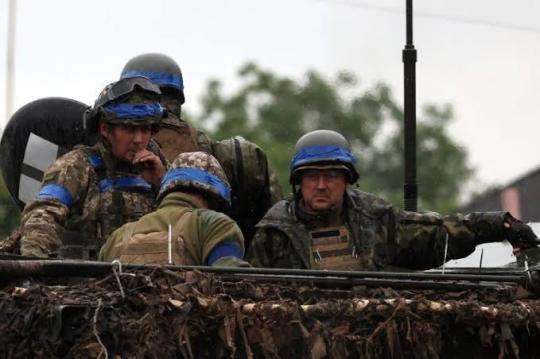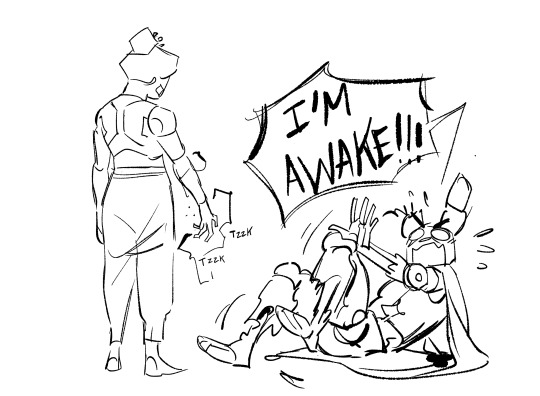#arms control
Explore tagged Tumblr posts
Text
hell yeah

Any transfer of weapons or ammunition to Israel that would be used in Gaza is likely to violate international humanitarian law and must cease immediately, UN experts warned today.
108 notes
·
View notes
Text
On today’s episode of World War III is Just Around the Corner:
“Although the buildup was largely overlooked by Western media at the time—and has since been forgotten amid the outbreak of war between Israel and Hamas—it is part of an alarming development in the Balkans. The immediate pretext for the Serbian mobilization was months of unrest between Kosovo and Serbia, which have maintained a fragile peace ever since a NATO bombing campaign helped Kosovo win de facto independence from Belgrade in the 1998–99 war. In May, Serbia placed its troops on combat alert after ethnic Serbs living in Kosovo clashed with Kosovo police. And then in September, just before the recent mobilization at the border, 30 heavily armed ethnic Serbs attacked a police patrol in Kosovo, leaving four people dead.
But there are many indications that these incidents go beyond the familiar tensions that persisted in past years. These incidents also show the growing threat that Russia, Serbia’s partner, is posing to the region. In 2022, for example, Serbian Prime Minister Ana Brnabic said that Kosovo and Serbia were “on the brink of armed conflict.” And Moscow—which does not recognize Kosovo’s independence—fanned the flames, using information operations to fuel Kosovar-Serbian distrust and to spread hawkish messages that polarize the region along ethnic and religious lines. Russia has also armed Serbia while increasing Serbia’s energy dependence on its companies by providing gas and oil at a sharp discount. Moscow has promised Belgrade that it will block Kosovo from becoming a UN member state. “A big explosion is brewing in the center of Europe,” Russian Foreign Minister Sergei Lavrov said in May. It might have been a boast.
(…)
It is time, then, for NATO to decisively put an end to Vucic’s Kremlin-enabled sideshow. The United States and Europe must make it clear to Belgrade and Moscow that they will react strongly, and harshly, to future Balkan provocations. They must strengthen NATO’s presence in the region and establish credible redlines that Serbia cannot cross without provoking a military confrontation with NATO forces. And they must sanction Belgrade if Serbia’s leaders do not move away from Moscow and de-escalate tensions.
(…)
For Putin, this opening has been a boon. Russia views the Balkans as Europe’s soft underbelly, and Moscow believes that Serbia is its most vulnerable spot. His goal is to turn Moscow into the Balkans’ only reliable conflict negotiator—giving the Kremlin leverage over Western powers. After all, if peace in the Balkans depends on Putin, NATO officials might have to make concessions to Moscow if they want to avoid war. By pushing the Balkans to the brink, he also hopes to show that NATO is a paper tiger and will not act if truly tested. Even if NATO does fight back against Serbia, Putin could still win. By opening another front, the West would have less capacity to help Ukraine.
The Kremlin has other reasons to support chaos in the Balkans. Putin uses the so-called Kosovo precedent to defend its illegal invasion of Ukraine, arguing that the annexation of Ukrainian territories is justified by Kosovo’s independence. According to this perverse logic, articulated by Russia’s permanent UN representative in a January speech, the illegal and wildly fraudulent annexation referendums held in occupied Ukrainian territories are akin to Kosovo’s fight for freedom from Serbia more than two decades ago. Kosovo, in other words, had the right to leave Serbia, and so the occupied Ukrainian territories have the right to join Russia. (The fact that Russia does not recognize Kosovo’s independence, or that Kosovo’s independence is, in fact, a precedent for Ukraine’s own fight for freedom, are ironies that Moscow has not addressed.)
(…)
If the West continues to enable Vucic, it will simply embolden him. He will keep testing NATO and trying to prove that the alliance is toothless. The West has already given him encouraging signals: after more than 30 NATO peacekeepers were injured in the May clashes with Serbian protesters, the alliance did not detain the violent protesters out of fear that doing so would escalate the conflict. But such restraint is an invitation for further escalation by Vucic, as well as by the Kremlin. Russian officials are watching what happens in Kosovo and wondering whether they can get away with attacking NATO forces and installations.
(…)
To try to contain the conflict, a week after the May attack, NATO increased its presence in the region with a new legion of roughly 500 Turkish soldiers. NATO also deployed hundreds of British troops to the country in October. But these measures are insufficient. NATO must create a coalition of the willing, headed by the United States, that can send successfully pressure Belgrade and Moscow to stop promoting political instability. That means making it clear to Vucic that, if he continues to take escalatory measures, he will face an escalating series of tangible consequences—including, possibly, sanctions.
The West is well positioned to take such steps. In June 2021, U.S. President Joe Biden signed an executive order allowing Washington to impose sanctions against anyone who destabilizes the Western Balkans. Washington should not be shy about using them against individuals who (in the words of the order) “threaten the peace, security, stability, or territorial integrity” in the region. For American sanctions to have maximum effect, the United Kingdom and the EU should join Washington’s efforts. European leaders should, at a minimum, make future assistance to Serbia dependent on specific policy shifts in Belgrade. The EU, for example, could condition further aid on Vucic’s imposing sanctions on Russia, aligning its foreign policy with that of the bloc, tamping down on regional provocations, and fulfilling the EU’s reform agenda—especially when it comes to the rule of law and media freedom.
On the ground, NATO should deploy teams in Kosovo that counter Russia’s and Serbia’s propaganda machine. These teams should target far-right Serbian groups and remind them that Russian messaging about a “Slavic brotherhood”—to which Serbia ostensibly belongs—is a myth and that if conflict does erupt, Putin will not help them. To do so, all they need to do is speak the truth: Putin has his hands full fighting a losing war against Ukraine, and he will not provide resources to Serbia for an armed conflict with Kosovo. As evidence, these teams could point to the September war between Armenia and Azerbaijan. Russia is a longtime ally of Armenia, and yet despite Armenia’s requests, Russia provided it with no military support in the recent conflict, which Armenia lost. The teams could also remind Serbian nationalists that Moscow did not help them during the wars in the 1990s.
NATO states may not want to take these measures. In fact, they probably want to ignore Vucic altogether. The alliance has been worn thin helping Ukraine, so expending time and resources on Kosovo and Serbia may feel like too much, especially when they can just buy off the latter country’s president.
But the West must realize that, if left to fester, tensions in these states could become far more difficult—and expensive—to address. What happens in Kosovo and Serbia rarely stays in those countries, and this crisis could easily spill over to other Balkan states. Nearby North Macedonia, which belongs to NATO, might get dragged in. Further escalations in Kosovo will also invite chaos in Bosnia and Herzegovina, where Bosnian Serb leader Milorad Dodik—who has close ties to Putin—has threatened to have Bosnia’s Serbian territories secede. In October, Dodik even emphasized that Serbs should “form a single state,” consisting of Serbia, Republika Srpska, and Montenegro.
A widening conflict would be an even bigger gift for Putin, who wants the West to train its attention away from Kyiv as he fights to seize more of that country. To protect Europe and stop the Kremlin, it is therefore essential that NATO fortify its Balkans flank right now, while the costs of doing so are still cheap.”
“Russia on Tuesday formally withdrew from a landmark security treaty which limited key categories of conventional armed forces, blaming the United States for undermining post-Cold War security with the enlargement of the NATO military alliance.
The 1990 Treaty on Conventional Armed Forces in Europe (CFE), signed a year after the fall of the Berlin Wall, placed verifiable limits on categories of conventional military equipment that NATO and the then-Warsaw Pact could deploy.
The treaty was designed to prevent either side of the Cold War from amassing forces for a swift offensive against the other in Europe, but was unpopular in Moscow as it blunted the Soviet Union's advantage in conventional weapons.
Russia suspended participation in the treaty in 2007 and halted active participation in 2015. More than a year after the full-scale invasion of Ukraine, President Vladimir Putin in May signed a decree denounced the pact.
Russia's foreign ministry said Russia had formally withdrawn from the pact at midnight - and that the treaty was now "history".”
“NATO member countries that signed a key Cold War-era security treaty froze their participation in the pact on Tuesday just hours after Russia pulled out, raising fresh questions about the future of arms control agreements in Europe.
Many of NATO’s 31 allies are parties to the Treaty of Conventional Armed Forces in Europe, which was aimed at preventing Cold War rivals from massing forces at or near their mutual borders. The CFE was signed in November 1990 as the Soviet bloc was crumbling but was not fully ratified until two years later.
NATO said that Tuesday’s action by its signatory members was required because “a situation whereby Allied State Parties abide by the Treaty, while Russia does not, would be unsustainable.”
(…)
U.S. National Security Adviser Jake Sullivan said suspending the obligations by Washington and its allies will strengthen NATO’s “deterrence and defense capacity by removing restrictions that impact planning, deployments, and exercises -– restrictions that no longer bind Russia after Moscow’s withdrawal.”
(…)
Last week, Putin signed a bill revoking Russia’s ratification of the Comprehensive Nuclear Test Ban Treaty, a move that he said was needed to establish parity with the United States.
In February, with U.S.-Russia tensions running high over Ukraine, Moscow suspended its participation in the New START Treaty, the last arms control pact that remains between the two countries.
Both countries also pulled out of the 1987 Intermediate-range Nuclear Forces Treaty in 2019, blaming each other for violations.”
“Europe had been moving towards the slaughterhouse for years, and by 1914 a conflict was all but inevitable—that, at least, is the argument often made in hindsight. Yet at the time, as Niall Ferguson, a historian, noted in a paper published in 2008, it did not feel that way to investors. For them, the first world war came as a shock. Until the week before it erupted, prices in the bond, currency and money markets barely budged. Then all hell broke loose. “The City has seen in a flash the meaning of war,” wrote this newspaper on August 1st 1914.
Could financial markets once again be underpricing the risk of a global conflict? In the nightmare scenario, the descent into a third world war began two years ago, as Russian troops massed on the Ukrainian border. Today Israel’s battle against Hamas has the frightening potential to spill across its borders. American military support is crucial to both Ukraine and Israel, and in Iraq and Syria the superpower’s bases have come under fire, probably from proxies of Iran. Should China decide it is time to take advantage of a distracted superpower and invade Taiwan, America could all too easily end up being drawn into three wars at once. The rest of the world risks those wars interlocking and turning into something even more devastating.
This scenario would of course place financial damage a long way down the list of horrors. Even so, it is part of an investor’s job to consider exactly what it would mean for their portfolio. So far the possibility of a world war has barely caused a tremor in the markets. True, they have for some time now been more seized by fear than greed. Bond prices have been turbulent, even for supposedly risk-free American Treasuries, and yields have been climbing for most of this year. Stock indices in America, China and Europe have fallen for three consecutive months. Yet this choppiness can all be plausibly explained by peacetime factors, including outsized government borrowing, interest-rate expectations and shareholders whose previous optimism had got the better of them.
In short, it does not look anything like the panic you might expect if the odds of the world entering into war were edging higher. The brightest conclusion is that such odds really are close to zero. A darker one is that, like the investors of 1914, today’s may soon be blindsided. History points to a third possibility: that even if investors expect a major war, there is little they can do to reliably profit from it.
(…)
War, in other words, involves a level of radical uncertainty far beyond the calculable risks to which most investors have become accustomed. This means that even previous world wars have limited lessons for later ones, since no two are alike. Mr Ferguson’s paper shows that the optimal playbook for 1914 (buy commodities and American stocks; sell European bonds, stocks and currencies) was of little use in the late 1930s. Investors in that decade did try to learn from history. Anticipating another world war, they sold continental European stocks and currencies. But this different war had different winning investments. British stocks beat American ones, and so did British government bonds.
Today there is a greater and more terrible source of uncertainty, since many of the potential belligerent powers wield nuclear weapons. Yet in a sense, this has little financial relevance. After all, in a nuclear conflagration your portfolio would be unlikely to rank highly among your priorities. The upshot of it all? That the fog of war is even thicker for investors than it is for military generals, who at least have sight of the action. If the worst happens, future historians might wonder about the seeming insouciance of today’s investors. They will only be able to do so because, for them, the fog will have cleared.”
#russia#putin#ukraine#nato#arms control#europe#cfe#serbia#kosovo#armenia#azerbaijan#world war#world war 3#wwiii#balkans#china#taiwan
4 notes
·
View notes
Text
Unchecked arms sales can fuel conflict & empower harmful actors. Transparency & accountability are crucial in US weapons exports to prevent destabilization & human rights abuses. #ArmsControl #GlobalStability #ResponsibleExport
0 notes
Text
National Workshop on Global Instruments on SALW control.

The UN Regional Centre for Peace and Disarmament in Asia and the Pacific (UNRCPD), in collaboration with the Ministry of Foreign Affairs of Nepal and the Armed Police Forces of Nepal, and civil society organizations, proposes to host a national workshop. The workshop will be organized as part of the EU-funded regional project aimed at supporting the implementation of the PoA, and will engage senior officials from key ministries such as the Ministry of Foreign Affairs (MoFA), Ministry of Home Affairs (MoHA), and Ministry of Defense (MoD), alongside parliamentarians and civil society representatives. The national workshop will focus on Global Instruments on SALW control, with a primary focus on the PoA and its ITI.
The workshop’s content will be structured to align with relevant actions outlined in the UN Secretary-General’s Agenda for Disarmament, ‘Securing our Future,’ as well as the goals and targets established within the 2030 Agenda for Sustainable Development, the New Agenda for Peace, and complementary frameworks such as the Women, Peace, and Security agenda and the Youth, Peace, and Security agenda. It will encompass expert presentations on global instruments for arms control and an analysis of national policy and regulatory frameworks. Drawing from international guidance such as the Modular Small Arms Control Implementation Compendium (MOSAIC) , the workshop will feature interactive exercises and focused discussions on key thematic areas.
Start Date: Sep 3 2024 End Date: Sep 5 2024 Location: Kathmandu, Nepal Meeting Hosted By: UNRCPD, Ministry of Foreign Affairs and Armed Police Forces of Nepal Meeting Supported By: The European Union
#Securing our Future#New Agenda for Peace#women peace security#youth peace security#Modular Small Arms Control Implementation Compendium#MOSAIC#Workshop#interactive exercises#thematic discussion#arms control#civil society representatives#unrcpd#United Nations Regional Centre for Peace and Disarmament in Asia and the Pacific#agenda 2030#Ministry of Foreign Affairs (MoFA)#Ministry of Home Affairs (MoHA)#Ministry of Defense (MoD)
0 notes
Text
youtube
How would a nuclear war between Russia and the US affect you personally...
I’m an expert in the end of the world. The Oscar-nominated Oppenheimer made me cry in terror.
As it heads into the Oscars, what Oppenheimer gets right — and wrong — about the threat of nuclear weapons.
By Haydn Belfield Mar 10, 2024
"The “individuals and organizations that have fought long and hard to reduce the number of nuclear weapons” that Nolan paid tribute to — like the Bulletin of Atomic Scientists, Joseph Rotblat, and the Pugwash Conferences — weren’t really shown in his remarkable, magnificent, affecting film. Indeed, they were never supported by Oppenheimer. We’re in a tough spot, facing the possibility of a new nuclear arms race. We need to learn from these successful arms controllers, rather than from Oppenheimer’s failures."
READ MORE Oppenheimer is an Oscars masterpiece — but it celebrates the wrong parts of the Manhattan Project - Vox
0 notes
Text
SBU accuses arms company employees of stealing $40m
The Security Service of Ukraine accused the current head of a Ukrainian Defence Ministry department and employees of an arms firm of stealing $40 million, Ukrainian Social Media reported.
The SBU confirmed searches at officials of the republic’s Defence Ministry and employees of an arms firm of Lviv Arsenal.
It is reported that five people have been charged and one person detained trying to cross the Ukrainian border. If found guilty, they face up to 12 years in prison with confiscation of property.
Read more HERE

#world news#world politics#news#europe#european news#ukraine#ukraine war#ukraine news#ukraine conflict#ukraine russia conflict#ukraine russia news#ukraine russia war#russia ukraine war#russia ukraine conflict#russia ukraine crisis#russia ukraine today#security services#army#arms control#ukrainian armed forces
0 notes
Text
Stevenson's army, September 24
– Turkey approved Sweden in NATO; Hungary still needs to act. – Republican Senators fight over border & Ukraine, shows weakened McConnell – Some Senators question Biden authority to attack Houthis [My view: President has authority & precedents for Red Sea operations,��not for defense of Israel] – Taiwan Caucus group goes to Taiwan. – WOTR writer sees corruption in Chinese rocket forces –…
View On WordPress
#Africa#Arms control#artificial intelligence#China#Congress#houthis#Hungary#NATO#Sweden#Taiwan#Turkey#Ukraine
0 notes
Text
In the News - Trudeau says murder of Sikh leader in B.C. may be linked to Indian government
Working & Coordinating with Allies; Well that’s odd; all I heard from “allies” so far is is a deafening “shhh”! Well, to be honest though when rules are broken by those who are supposed to be the rule makers/protectors then what we see today (if true)/and have been seeing for some time now by other so-called leaders is to be expected – no rocket science there. Another element is the…

View On WordPress
0 notes
Text
Ukraine Strikes Back: Significant Territorial Gains Made in Ongoing Conflict with Russia
In a significant turn of events, Ukraine has announced the recapture of approximately 100 square kilometers (40 square miles) of its territory during the 68th week of Russia’s invasion. This progress marks a crucial milestone in Ukraine’s long-planned counterattack, which is now gaining momentum and posing a challenge to the Russian forces. However, Russian President Vladimir Putin has dismissed…

View On WordPress
#arms control#crisis management#diplomacy#diplomatic efforts#foreign policy#Geopolitics#global security#informal agreement#intelligence#international cooperation#International relations#Iran#Middle East#negotiations#non-proliferation#nuclear crisis#nuclear deal#nuclear weapons#peace#preventing#regional tensions#sanctions#security#stability#strategic dialogue#United States
1 note
·
View note
Video
youtube
Scott Ritter talks about his upcoming trip to Russia to promote his book...
Disarmament in the Time of Perestroika: Arms Control and the End of the Soviet Union

Great Book, My girfriend gave me a copy for Christmas this year! Below her signing it for me on Christmas Eve. Not an easy book to read but the message is everything!

1 note
·
View note
Text
SO funny that they tried to parallel willow’s lethal magic addiction with spuffy when what buffy was doing was….. getting orgasms from someone who was in love with her cnxnxnxbbxxbxnxnxn
#granted BUFFY was thinking about it that way but like djdndndnbddhsbdb#i mean congrats spike for being so crazy good in bed buffy hung garlic from her windows and sat clothed in bed with a cross so she didn’t#run into your arms i guess fjdndnxnxndbxd#the most miserable girl in the world experiencing good sex for the first time in her life: i am the worst person to ever live#btvs#control freak dead girl buffy summers you are the loml
583 notes
·
View notes
Text
I accept that #faith does not need to know the exact details of the future. I accept that what i already know is an abundance of preparation for the #present day. Ryan Douglas Jackson - Kill Kill
0 notes
Text
(9th meeting) Preparatory Committee for the Programme of Action on Small Arms and Light Weapons.
Recommendations to the Conference on all relevant matters, including the draft agenda, draft rules of procedure, draft final documents, background documentation and nominations for President and Secretary-General of the Conference
Other matters
Adoption of the report of the Preparatory Committee
Programme of Work Agenda Website
#light weapons#small arms#plenary meetings#programme to action#international instrument#international assistance#arms control
0 notes
Text
wakey wakey


#CONTROLLED SHOCK YOUR FRIENDS!!! (LITERALLY) THIS WILL MOTIVATE THEM!!! (NOT REALLY)#they zap each other but like. in the same way a friend would pinch your arm before you do something stupid#!!! oh !! the animatronics have unusual ways of communicating and expression themselves due to their body limitations#especially the funtimes! that will be explained in the future#for now. enjoy this little gag#btc springtrap#btc ballora#starbsart
3K notes
·
View notes
Text




I wanted to do something for mermay, so here are my designs for some merturtles!
Leo is a Leafy seadragon,
Donnie is a Vampire squid
Mikey is a Epaulette shark
And Raph is a Scorpionfish!
Also heres a bonus drawing of a young April holding her little aquatic friends (dont worry they can breathe air just fine)

#Donnie can and will stare into your soul#Mikey is the only one who can really get around on land all that well#The rest are absolutely terrible#i fucking live epaulette sharks#theyre just so cool#dont look too hard at Donnies biology#....just dont#trust me#donnie has so much envy for octopi#they can use all theyre arms for manipulation while he can only ise two#despite having more arms than them!#its a tragedy#Leo is the camouflage master when hes around plants#except when he dyes some of the leafy tips bright colours#cause hes an idiot#Raph is poisonous#(not deadly though dw)#but he has conscious control over it#just dont startle him!#rottmnt#rottmnt leo#rottmnt donnie#rottmnt mikey#rottmnt raph#rottmnt april#mermay
638 notes
·
View notes
Text
Stevenson's army, January 20
– NYT says Israel weighs hostage vs. Hamas goals – Multiple reports on splits in Israeli cabinet: WSJ; FT ; WaPo – Biden says 2 state option has various forms – Fred Kaplan assesses Mideast conflicts – Russia rejects new arms control talks – Guardian assesses European political movements – WaPo assesses new North Korean actions. – UN report says Sudan RSF is supported by UAE – ISW…
View On WordPress
#Arms control#European Union#Hamas#Hostages#Israel#Israel/Palestine#Middle East#North Korea#Russia#Sudan#United Arab Emirates
0 notes